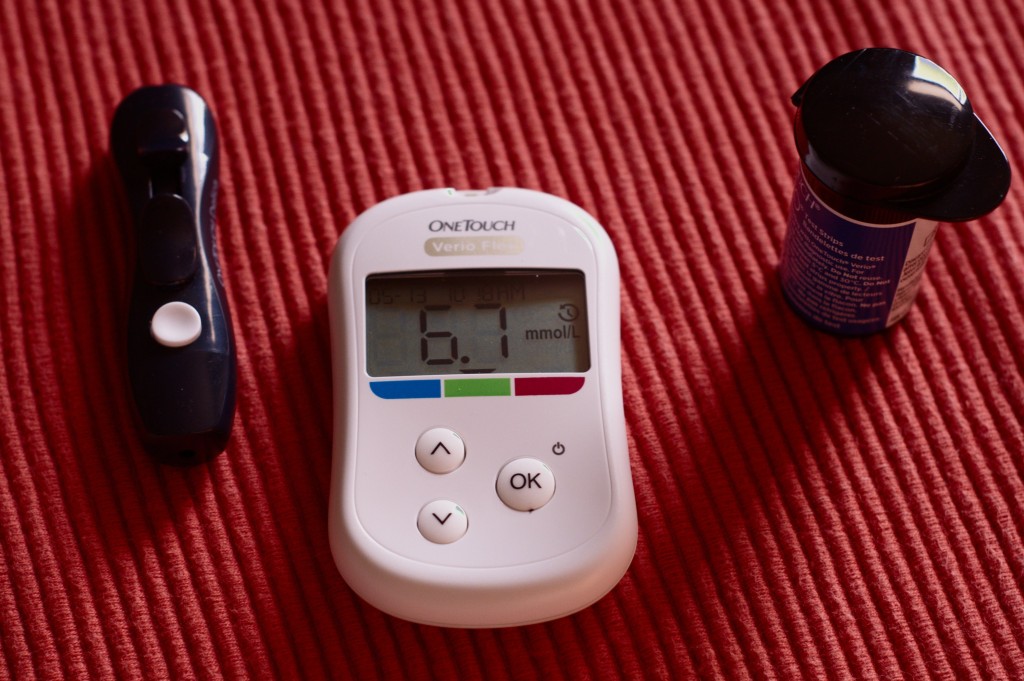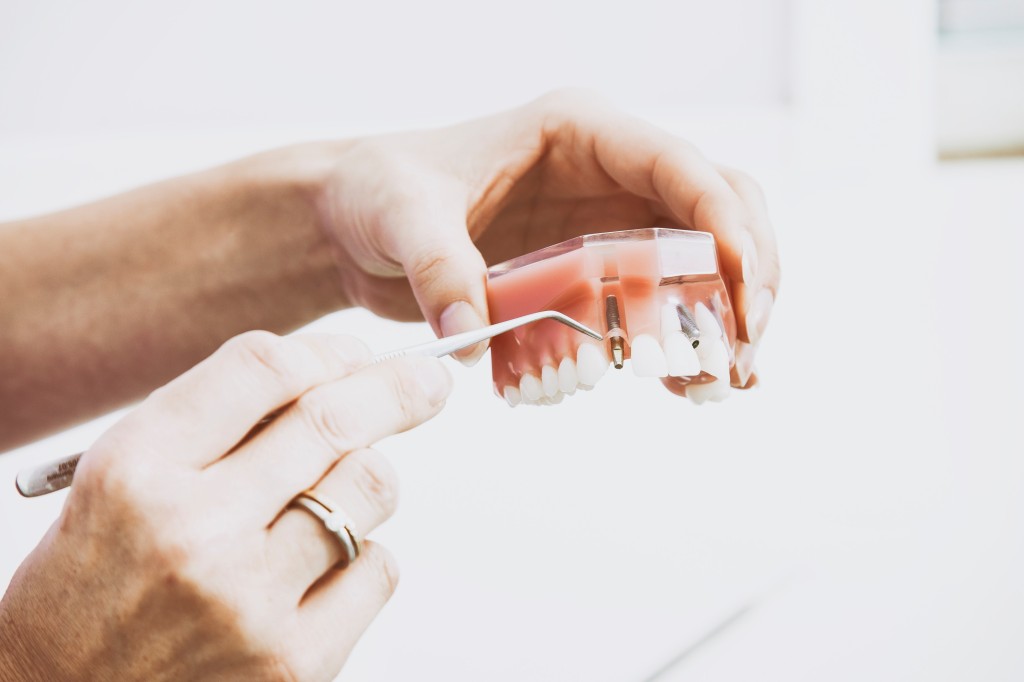Did you know that having Diabetes can cause a variety of problems with your teeth and gums, as well as your overall health? It’s true! You might not realize it, but being diagnosed with this disease may have detrimental effects on a variety of systems within your body – including your oral health.
Today your denturist in Portland OR wants to help educate you on some specific problems you may encounter if you have received this troubling diagnosis.
If you have diabetes, some of the most common oral health problems you might encounter are:
- Gum disease
- Thrush (a fungal infection)
- Slow healing after surgery
***************************************************************************************
Gum Disease and Diabetes
Gum disease (also called periodontal disease) is when the tissues that hold your teeth in place become irritated and inflamed. If the disease is severe, it can destroy tissue and bone. This can lead to tooth loss. Young adults with diabetes are about twice as likely to get gum disease. In older adults with diabetes, gum disease is often more frequent and more severe, especially if they smoke tobacco.
People with diabetes who have poor blood sugar control are more likely to lose teeth than those who have good control. Research also suggests that treating gum disease may help improve blood sugar control and overall health.
Eating a well-balanced diet, practicing good oral care at home, and seeing your dentist regularly for checkups can help you to keep your blood sugar in the healthy range.
People with gum disease may not see any symptoms. However, if you notice any of the following, see your dentist immediately:
- Gums that bleed easily
- Gums that have pulled away from the teeth
- Pus between the teeth and gums when the gums are pressed
- Constant bad breath or bad taste
- Permanent teeth that are loose or separating
- A change in the way your teeth fit together when you bite
- A change in the fit of partial dentures
Living with Diabetes and the Risk of Thrush.
Thrush is a fungal infection that happens more often in people with diabetes. Possible signs and symptoms include:
- White or red patches in your mouth that may be sore and may turn into open sores
- It may affect your tongue and cause a painful, burning sensation, which can dull your sense of taste and make it difficult to swallow
Regular oral health habits can help you avoid problems with thrush. If needed, your dentist can prescribe medicine to treat it.
Slower Healing for People Suffering from Diabetes.
If you have diabetes, it may take your body longer to heal after dental work or other bodily trauma. This includes having a tooth pulled or any other oral surgery. Be sure your dentist is aware that you have diabetes when planning your treatment.
Diabetes and Oral Care: What You Should Do
If you keep your teeth clean, you are less likely to get tooth decay, gum disease, and other oral infections. Brush twice a day with fluoride toothpaste for at least two minutes each time. This will remove the sticky film of bacteria on teeth that can lead to gum disease. Also, clean once a day between your teeth with floss or another between-the-teeth cleaner.
Your dentist may suggest using a special mouth rinse and/or toothpaste to control gum inflammation. He or she also may recommend rinsing with a fluoride mouth rinse or applying fluoride at home and in the dental office to help prevent tooth decay.
Before any dental treatment, be sure to let your dentist know:
- That you have diabetes
- About your blood sugar level
- Any recent problems with infections
- Changes in your medical history
- The names of all prescription and over-the-counter drugs you are taking and any change in the medications you use
Eat before you go to the dentist so that your blood sugar level is in a normal range and your diabetes medicine is already in your system. If you take insulin, try to schedule a morning visit after you have eaten breakfast or discuss the best strategy when you make your appointment.
If you need some type of dental surgery, it may affect what you can eat. Your dentist should talk to your doctor about the best way for you to control your diabetes in this case.
Practice good oral care at home, follow your doctor’s instructions for foods and medicines, and schedule regular dental checkups for a healthy smile.
These are just a few ways that diabetes can impact your oral health, and taking the above steps as a precaution can greatly reduce your chances of falling victim to these conditions. Your trusted denturist in Portland OR is here to help educate you on keeping your mouth up to par so you and those around you can enjoy that beautiful smile for years to come!
Contact Tanya Poleon today to schedule your consultation or to discuss any of your denture related concerns.

